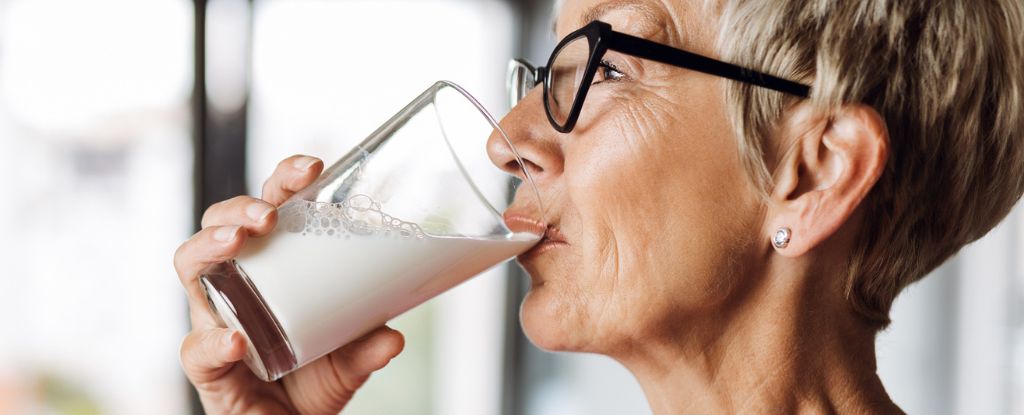A glass of milk each day holds potential to improve bowel health, new research suggests.
An observational study of more than half a million women has found that drinking 200 grams of milk a day could cut the risk of colorectal cancer by as much as 14 percent.
The findings join other recent observational studies, which have also found that dairy foods, especially those rich in calcium, may play a protective role in the gut, particularly among women, who tend to consume less calcium and who are prone to calcium deficiencies.
The current research was led by scientists at the University of Oxford, and it considers the long-term health data of middle-aged and older European women, who also completed a dietary questionnaire.
Of all 97 dietary choices considered in the study, dairy-related foods, like yogurt and milk, showed the strongest negative correlations with the development of colorectal cancer.
Not all of these dietary staples stood up to further analysis, but milk and calcium were exceptions. In fact, consuming 300 grams of calcium cut the risk of cancer by 17 percent, three percentage points more than milk.
In further number crunches, researchers found the link between bowel cancer and dairy milk was primarily due to calcium. As such, there’s a chance that foods rich in calcium, even if they are non-dairy options like soy, may protect against long-term health issues in the lower gut.
As rigorous and large as this study was, however, it can only hint at possible causes and preventions of cancer.
Bowel cancer is on the rise in many parts of the world, and researchers suspect unhealthy food choices are contributing to that surge.
Alcohol and processed or red meat, for instance, are thought to increase the risk of bowel cancer, and in the current study all three of those factors were tied to an increased risk.
In fact, drinking two standard alcoholic drinks a day had the strongest positive association with cancer risk, maxing out at 15 percent, according to the authors of the analysis. Thirty grams of red and processed meat a day was tied to an 8 percent increase in cancer risk.
Randomized, controlled trials have largely upheld the associations between meat and alcohol and bowel cancer, but the role of calcium is less clear.
While observational studies keep turning up a link, some randomized, controlled trials that have investigated whether calcium supplements can impact bowel cancer have found no effect.
“While this study highlights a potential benefit of increased dietary calcium, journalists and the public should approach the findings with caution,” warns David Nunan, who focuses on evidence-based medicine at the University of Oxford and who was not involved in the current study.
“The reported figures may overstate the true effect due to methodological limitations. More robust research, such as randomized controlled trials, is needed to establish causation.”
Scientists today think that as many as half of all bowel cancers can be prevented through a healthy lifestyle and dietary changes. The current analysis has its limitations but it largely suggests that alcohol, and red and processed meat, can put the health of your bowels at risk if they are eaten too often.
Meanwhile, dairy and non-dairy sources of calcium, apart from ice cream and cheese, may be a gut booster.
Coffee wasn’t considered in the current analysis, but previous studies have found that people who drink more coffee also have a reduced risk for bowel cancers.
Latte anyone?
The study was published in Nature Communications.





